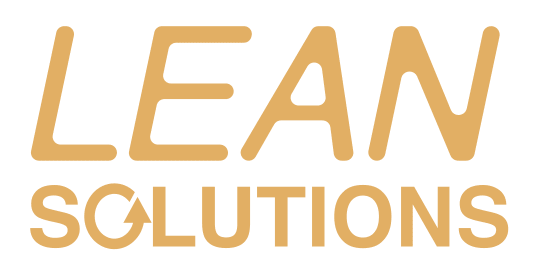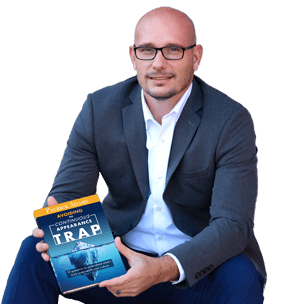What You’ll Learn: In this two-parted episode, host Andy Olrich delves into Katie Anderson’s transformative Chain of Learning workshops in Australia. Tune in as they explore attendee expectations, workshop insights, captivating leadership themes, and profound reflections.
About the Guest:
Katie Anderson is an internationally recognized leadership consultant, coach, professional speaker, and learning enthusiast, dedicated to helping purpose-driven leaders create cultures of learning and accelerate individual and organizational impact.
A skilled change agent and coach, Katie has supported tens of thousands of leaders across a range of industries to create organizational learning cultures that foster innovation, engagement, and continuous improvement. A popular keynote speaker, she is the author of the bestselling book Learning to Lead, Leading to Learn, which has received multiple international awards, including the Shingo Publication Award, and has been translated into over eight languages. Katie is also the host of the transformational leadership podcast Chain of Learning.
Katie holds a BA with honors from Stanford University and was a Fulbright Scholar in Australia, where she received her Master’s degree in public health. She has lived in seven countries, and regularly leads executive study trips to Japan for leaders looking to deepen their knowledge of people-centered leadership, operational excellence, and Japanese culture.
Links:
Click Here For Andy Olrich’s LinkedIn
Click Here to Learn More About Katie Anderson
Click Here For Katie’s Podcast, “Chain Of Learning”
Click Here For The Lean Solutions Summit
Andy Olrich 00:00
Hello, and welcome to the Lean solutions podcast. Here with your host, Andy Olrich. And a special episode today, it’s just me, I’ll be doing the interviewing. And I am super thrilled today to have the wonderful Katie Anderson as our guest. So we’re talking today about the chain of learning. And where we talk about especially when times are tough, or we’re going through some struggles. How important is for us to continue to thirst for learning, develop ourselves and our people along the way and, and especially in those hard times how we can come out the other side and be stronger and, and be ready for the for the better times ahead. So for those of you who don’t know Katie Katie has been a guest on the podcast three times now, I believe. And she’s of course done many other podcasts has her own podcast, which is the chain of learning and learning to lead. Katie is an internationally recognized leadership consultant, coach, professional speaker and learning enthusiast, and Katie’s dedicated to helping purpose driven leaders create cultures of learning, and accelerate individual and organizational impact. So she’s a skilled change agent and coach and has supported 10s of 1000s of leaders across many, many industries, to create organizational learning cultures that foster innovation, engagement and continuous improvement. Katie is in hot demand for speaking engagements. And of course, she’s written a fantastic book, called learning to lead leading to learn, which has won multiple international awards, including a Shingo publication award. So Katie, which is really cool is in Australia right now. So this is a live on location in person interview with Katie. Katie has spent some time in Australia and I’ll let her talk a bit more about that. She’s got Master’s Degree in Public Health. I could go on and on. But I won’t. Katie leads extensive, amazing trips to Japan for lien study tours. And we’ll talk a little bit more about that as well. I think I’ll just throw it over there. Welcome, Katie. How are you going?
Katie Anderson 02:30
Good. Hey, Andy. It’s great to be here in Australia, recording live in my former hometown of Sydney. Super awesome that we were able to connect here live in person. And so I’m excited to dive in to our conversation and super excited to have you joining me in person for one of my workshops here in Australia.
Andy Olrich 02:51
Cool. So yeah. Why are you here in Australia? Why are you back down on Katie?
Katie Anderson 02:55
Well, I was invited by ame, Australia. So the Association for manufacturing excellence Australia with an organization with with whom I’ve partnered for the last four years remotely. And we’ve been scheming to have me come over in person for years to reconnect with people down under especially because I lived in Australia for four years, I had my master’s degree from Sydney University, and really love this country. And I’m here leading a series of chain of learning workshops across three of the major cities in in Australia. So I started in Melbourne, Brisbane, and we’re capping it off here in Sydney, Australia. And it’s been absolutely fabulous to meet hundreds of Lean practitioners and passionate leaders who are really trying to create high performing continuous improvement cultures in their organizations.
Andy Olrich 03:44
Awesome. Yes, I will be one of them tomorrow. So what you’re hearing now is the day before, and I’ll be going along tomorrow to see Katie and action, live in person, which I’m really excited about. I first got introduced to Katie through her fantastic book, I was in the grips of lockdown here in Australia. And through my great mate Patrick Adams, we were told about this book, learning to lead leading to learn and I got it an absolute game changer. If you haven’t read it. Do yourself a favor. It’s right up there on the books that you should read if you really want to learn and become great at learning and developing others. So tomorrow I’ve done my homework. Katie, there’s a couple of things in the book that we’ve been asked to read before. What am I expecting to get out of tomorrow? Well, we were asked to come along with a problem in mind or a process challenge that we have in our roles. I’m really excited that I’ll be able to take some of that context from the book and to be honest, whatever you’re going to walk us through tomorrow. I’m really excited to see what nuggets I can take out of that and take back into this challenge that I’ve got at the moment so no pressure, but I am expecting some awesome things. I’ve been following you for a while online and obviously the book so For me, it’s just really cool that there’s some cost of living challenges, especially down here in Australia at the moment. There’s things around inflation and and all those sorts of tougher economic times. But it’s just so great to see a lot of organizations still investing in themselves and their people to go along to events like yours, learn, take those learnings and skills back. Because yeah, if we can get ourselves as I mentioned at the start, if we can learn some more skill and mastery around how we can learn to be more effective, or when those things are coming at us at speed, how we can we can position ourselves to get ourselves out of that and improve. So that’s really for me is I’m more about, you know how I can see from others in the room as well and learn from them. We’re from all different industries and backgrounds, how the magic of what Katie is going to bring to us tomorrow. And I really look forward to doing a take after it. We’re going to talk about how I went and on what I thought and key takeaways. But also, in a few months time linking back with those others in the room to say, Okay, how did we go and it does, it creates a real network, and that that chain of learning where we can all bounce off each other. So really excited, Katie?
Katie Anderson 06:14
So to build on that concept of chain of learning, that’s what tomorrow this workshop is all about. It’s about how can you and all of us continue to grow and develop ourselves and also grow and develop others so that we develop capability and confidence for problem solving innovation across organizations, and each of us have an opportunity to touch other people. And so how can you have really clear, tangible, easy to do takeaways that will start to grow and strengthen how you’re impacting others, and so that others are continuing to grow and develop as well. So I’m excited to hear your reflections after after tomorrow. So we’ll dive into that at the end of this episode to stay tuned.
Andy Olrich 06:52
And this is not a first kick for you. You’ve done it for the likes of Costco GE like this is this is a global program. And we’re just so lucky to have you down here, Katie, and it’s great that you’re here. So I wanted to ask you, we talk about points of difference, right? You’ve spent some time living in Australia, when you spent your time here, as opposed to now when you come back and leave these sorts of things. Is there anything unique about us mate? Is there something that’s in Australia that you, you kind of pick up? And it’s a unique cultural thing that we have here that maybe isn’t in the States or Japan? I’d be fascinated because I don’t know what I don’t know. So is there something interesting about Australia in this space?
Katie Anderson 07:32
Yeah. So there’s, I have two comments on that one, and you’ll see this tomorrow is I ask this, I’ve asked the same question at workshops, probably 10,000. leaders around the world. I mean, to do this online, I go to countries around the world, the Netherlands, Poland, Colombia, Brazil, US, Canada. And there’s something very common about us as humans. So you know, when we talk about, like, what is great leadership look like, was a great coach look like, those common principles are the same no matter what country I go to. I also ask people, What are the barriers that keep us from having a culture of problem solving and where people feel like they can come forward and contribute their ideas and take responsibility for contributing their their ideas. And generally, all the same things come up. What I’ve noticed in the last two workshops, is the concept that this is this is a slight difference in Australia, something that doesn’t come up in the other countries, or organizations that I’ve talked with, is the concept of the tall poppy syndrome as a barrier for people speaking up or contributing to problem solving. And that concept of Well, I’ll let you Andy, explain what is the tall poppy syndrome?
Andy Olrich 08:42
Yes, unfortunately, that probably is a unique thing about living down here is if somebody’s doing well, and they’re starting to rise up, say growing up like a tall poppy is the analogy. Someone loves to come along and chop that poppies flower off, like chop the head off it. So yeah, it’s used to say, and unfortunately, you do see it in parts is where someone’s doing really well, we should be cheering them on from the sidelines. Sure, is, like someone’s going to come over and they’ll try and pick that apart or tear them down or actually point out only the things that are going wrong. So yeah, that is a term that we use here a lot. And we had a great chat with Mark Rubin there a few episodes ago around psychological safety and things like that. So yeah, that tall poppy syndrome is something that there’s actually some legislation and things that are coming into place now to really drive that out. But it’s good that you’ve seen that about Australia as far as we have a point of difference that you can seek out and try to work on. But also Yeah, it’s a bit it’s a bit of a shame that we have that but yeah, I’m always interested in the cultural aspects.
Katie Anderson 09:43
Yeah, and you know, I think the tall poppy that well, that’s something I observed when I was both studying so I did my master’s degree here and then worked for two and a half years and it was something is an American like almost like the Americans are on the opposite end, where your lead with your accomplishments and you know, you kind of Lead with the things you’ve done. Whereas in Australia, you really want to not lead with that. It’s not perceived as beneficial to your status. And so it was a very interesting thing for me, living in different cultures, figuring out how to navigate being yourself authentically, but also knowing how to navigate a culture. And so that was an interesting comment around the tall poppy, of not wanting to speak up because if you have an idea, you might be perceived as someone who considers themselves a tall poppy. But the psychological safety is a concern around the world no matter where I go, and whether the fear of blame and retribution or not having the right the right idea was interesting. There was one other thing that came up when talking about the difference in Australian culture, as well is that she’d be right mate. Like, so why would we bring something up? Because she’d be right or it’s like, not necessarily seeing problems as problems because of this attitude is all it’ll be okay. Yeah, I’m also curious if my Australian accents coming out a little bit in our in our conversation, because it will see, you
Andy Olrich 11:03
can’t tell the difference seriously, I’m sure people listening to this wouldn’t pick it up. Yeah, that she’ll be right, mate. And that is you do have that culture where and we’re seen as you’re fairly laid back, and she’ll be right made? And we don’t really, yeah, it takes a little bit to shake us all a lot. We let a lot of things slide for someone who works here. And we have similar industries and all of those challenges that come along with it. Any organization that sort of has that cultural attitude around, she’ll be right, well, they, they’re gone. They all people leave them and there comes a point where we’ve we’ve kind of got to step ourselves over that we don’t worry about everything. But yeah, it’s something that I guess we sort of pride ourselves a little bit on, as we maybe don’t overthink things, but we do overthink a lot of things. And I think that’s where the training and the experience around these types of workshops around how we continue to learn and not go well, I’ve, I think I’ve done enough to train or lead this group. That’ll do. I don’t want to overdo it. That we talked about you were talking earlier, Katie about Toyota, the thing that sets it apart is that is around its learning and development of people. It’s something definitely that I aspire to, to be part of. But yeah, I really appreciate those. Those things that you see around our culture just in Australia for others to connect with. But is there a country that you go to without talking them down or anything? But is the polar opposite of that? Is there one that is just like, Guys, you need to settle down?
Katie Anderson 12:35
Well, I think I’ll answer that question differently. Because, you know, it goes back to the concept to or the question always like, well, is lean only successful in Japan, like the Toyota, the Toyota Production System, because they’re Japanese. And one of the things that Patrick and I’ve talked about in past episodes is that Toyota culture is not the same as Japanese culture. And they actually had to do some very different things to counteract, some very, I guess, some Japanese cultural norms that weren’t as conducive to having this really high performing Kaizen continuous improvement culture. There were other things that really accelerated their ability to do that. And I think all the principles challenge us in different ways. And so there are some depending on what your country of origin culture is your company culture, your regional culture, in your own individual personality, might chat be challenging on different aspects of the principles. But if we go back to this, these principles about how do you lead with respect? How do you continuously learn? How do you create wisdom? How do you and then from the production principle side have built in quality mistake proofing, all of these things? They challenge us in different ways, some things might be easier, and something things might be harder. So you know, so I think maybe it’s, it’s not to say it’s a mistake, but every every culture has different challenges. And every organization has different challenges. And Patrick and I actually talked about this on my recent podcast episode on chain of learning Episode 12, go check it out, where you can’t have like a roadmap to like a pre prescribed pre cut cookie cutter roadmap to effective continuous learning culture, because the gaps you have to close are gonna be different than the gaps, you know, another organization needs to close or another country’s culture might be challenged to be addressing. So I won’t be specific, but I’ll just say we all have, we all have gaps. And we all have gaps. And we all have things that really help and accelerate us. So we got to leverage that leverage the positive side and then work on closing the gaps as well.
Andy Olrich 14:35
Yeah, and I think despite those differences, I really feel like we’re all seeking the same thing. So we want to be successful. We want to be respected. We want to have steady, we will have secure jobs. We want to know that people think we do a good job and I think that’s really why I’m passionate about Lean and the continuous improvement principles that you that you lead in Katie is around yeah, it’s it’s that’s where at the end of the day, that’s what really matters and it’s applicable and scalable anywhere. But yeah, it’s not one size fits all. Depending on where you are in the situation, you need to adapt and use certain tools and methods. What I’m really looking forward to Katie is I’m going to be at the Lean solutions Global Summit in September. And Katie is a keynote speaker there. So I’m going to be taking my first trip to Michigan, it is around accelerating you continuous learning. Katie, you’re the keynote there. What can people expect?
Katie Anderson 16:09
Well, one, I always bring the energy so and I might throw some rumors into the audience, too. So that was something I started in Brazil last year. And I think I’m just going to continue doing that one. You know, it’s gonna continue on the theme that I always talk about. It’s like how as individuals, can we lead with an attitude towards learning for not only ourselves, but really foster and create those conditions for learning in our organization. And this, this concept of leading to learn, which is core to my book that I learned from Toyota leader, Sal Yoshino that my book covers, you know, it’s 40 years at Toyota. But how do we get more clear on setting the direction? What’s the challenge we need to achieve? And then providing the support so that people within our organization have the capability and confidence to move towards that challenge? And how do we develop ourselves all the time? And that links to what we’re talking about here today to about how are you how you’re coming along to develop yourself. And I see myself as always developing myself in every interaction as well. So how do we have that mindset towards learning because the only secret to Toyota is its attitude towards learning. And so we can’t copy and paste all the like the the visible artifacts and the tools and templates, if we don’t have that attitude towards learning, we are not going to be successful. So we’re gonna dive into that and so much more. But I promise it’ll be an energizing engaging session full of some key takeaways as well that you can implement immediately. Yeah,
Andy Olrich 17:34
I expect no pressure, but I expect nothing less. And we’ve got Jeff liker, and we’ve got some other amazing guests that we’ve had on the podcast as well. And, again, it’s interesting, like that thirst for learning. I was connected with Patrick a few years ago. It’s led me to be connected to you, Katie. I’m now hosting a podcast and I’m now going to Michigan. So anyone out there that may be thinking about getting into this type of field or they’re on the start of their journey. Yeah, keep going. I just say to people, look, if I can, if I can have a journey like this, then that should give you hope that it’s possible to so. Alright, we’re going to start wrapping up here, but I just wanted to do a couple of Australian pop quizzes here for you, Katie. Yeah. Oh, no. Just a bit of fun. Not so much pop quiz. I just interested in your time in Australia. A couple of things. Have you become a fan of Vegemite? We don’t like it. No
Katie Anderson 18:30
to the Vegemite? I think unless you’re exposed as a child. It’s a very hard taste to acquire now, yes to the Tim Tam.
Andy Olrich 18:38
Correct that we’re aligned on that too. So you’re not everybody’s into that. Okay, five Australian band in excess. Nice. Okay. Favorite city in Australia has to be Sydney. And do we ride kangaroos down the street? No. Great. Another myth busted. Okay, so a bit of fun. Have you got any questions for me?
Katie Anderson 18:58
I want to know last time you saw the drop bear.
Andy Olrich 19:04
Yeah, that’s it. I don’t want to give that one away. Like, oh, it was just like last week, guys. You got to be so careful when you come down here. Right there. They are everywhere. They’re at? Yeah, they’re in plague proportions. It’s
Katie Anderson 19:14
you know, you hear of all the dangerous things and seriously, there are a lot of big spiders you do not want to see and other things. I’ll tell you later, Andy about the story about the jellyfish wrapped around my arm live swimming between Bondi Beach and in Bronte. But I didn’t die. So that was good.
Andy Olrich 19:31
That’s right at the end of the day, might Did you die? No. Keep going. Anyway, it’s a great place to visit. We might wrap it up there. We’ll continue this discussion tomorrow after I’ve witnessed Katie in action, and we’ll talk again then. Thanks, Katie.
Katie Anderson 19:44
Thanks, Andy. And I’m excited for this format. So we will tune in tomorrow with some reflections about continuous learning. Thanks






0 Comments